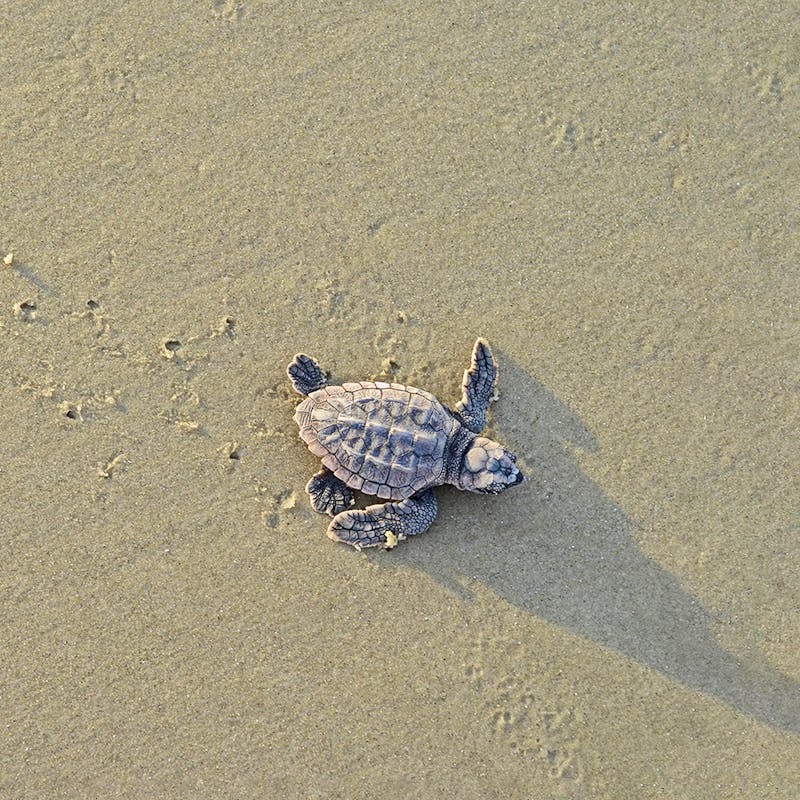Turtle Island Restoration Network, Center for Biological Diversity and Defenders of Wildlife called on Congress today to overturn a Trump administration rule from January that rolled-back the planned expansion of the Flower Garden Banks National Marine Sanctuary. The sanctuary is the only known nursery in the world for giant manta rays, and it offers important feeding grounds for sea turtles, sharks and many species of fish.
This decision departed from Obama administration plans to expand the sanctuary and was not made available for public comment during the environmental review period. In the final rule, the National Oceanic and Atmospheric Administration (NOAA) cited the need “to promote compatibility with users and reduce potential economic impacts to the offshore energy and fishing industries” to justify the remarkably smaller expansion.
The rule falls under President Biden’s 60-day freeze on final regulations promulgated under the Trump administration, and the National Marine Sanctuaries Act requires a congressional review period following an agency decision before it may take effect.
“We are disappointed the alternative that would have allowed for the largest possible expansion based on science was not chosen,” said Joanie Steinhaus, Gulf Program Director of Turtle Island Restoration Network. “It is the responsibility of NOAA to protect marine environments of significant importance. The marine animals that mate, feed, nurse, and live in Flower Garden Banks deserve the best protection possible.”
The rule omits 223 square miles that would have been protected, and excludes Bryant Bank. The largest expansion, Alternative 5, was supported by more than 53% of individuals who submitted comments on the Draft Environmental Impact Statement released in 2016 and was cited by NOAA as representing “the environmentally preferable alternative under this analysis.”
“We’re hopeful Congress will step in and help NOAA set straight this Trump-era conservation rollback of protections for this beautiful area,” said Jaclyn Lopez, a senior attorney at the Center. “Manta rays and their coral reef playgrounds are entitled haven from oil extraction and fishing.”
“Endangered marine species are in desperate need of protected habitat, especially those relying on the connectivity of coral reefs and sponge communities in the upper Gulf,” said Paul Sanchez-Navarro, senior representative for Southwest programs with Defenders of Wildlife. “Oil and gas extraction threatens the safety and movement of species who call the ocean home. We urge NOAA to make the right decision and increase this sanctuary to give sharks, rays and sea turtles a chance at survival.”
The Flower Garden Banks National Marine Sanctuary, designated in 1992, is the only sanctuary site located in the western Gulf of Mexico. It was established to protect the unique coral habitats that cover the region’s beautiful underwater mountains, called banks. Currently the sanctuary protects three separate areas—East Flower Garden Bank, West Flower Garden Bank and Stetson Bank—that encompass 56 square miles and include the northernmost coral reefs in the continental United States, deep-water reef communities, and other essential habitats for a variety of marine species.
Expansion of the sanctuary emerged as one of the top priority issues during a review of the sanctuary’s management plan in 2012. The Deepwater Horizon oil rig explosion, which resulted in the largest marine oil spill in U.S. history, also accelerated interest in expansion, with government scientists and non-governmental organizations urging additional protections for marine life and essential Gulf habitat.
Contact: Joanie Steinhaus, Turtle Island Restoration Network, joanie@seaturtles.org, 512-417-7741
Jaclyn Lopez, Center for Biological Diversity, jlopez@biologicaldiversity.org, 727-490-9190
Kerry Skiff, Defenders of Wildlife, kskiff@defenders.org, 202-772-0253
Turtle Island Restoration Network is a global ocean conservation nonprofit that works to protect and restore populations of endangered sea turtles and marine biodiversity on the Texas coast and throughout the Gulf of Mexico. www.seaturtles.org/gulf
The Center for Biological Diversity is a national, nonprofit conservation organization with more than 1.7 million members and online activists dedicated to the protection of endangered species and wild places. www.biologicaldiversity.org
For over 75 years, Defenders of Wildlife has remained dedicated to protecting all native animals and plants in their natural communities. With a nationwide network of nearly 2.1 million members and supporters, Defenders of Wildlife is a leading advocate for innovative solutions to safeguard our wildlife for generations to come. To learn more, please visit https://defenders.org/newsroom or follow us on X @Defenders.
Media Contact
News

Defenders Receives Advocacy Organization of the Year Award



